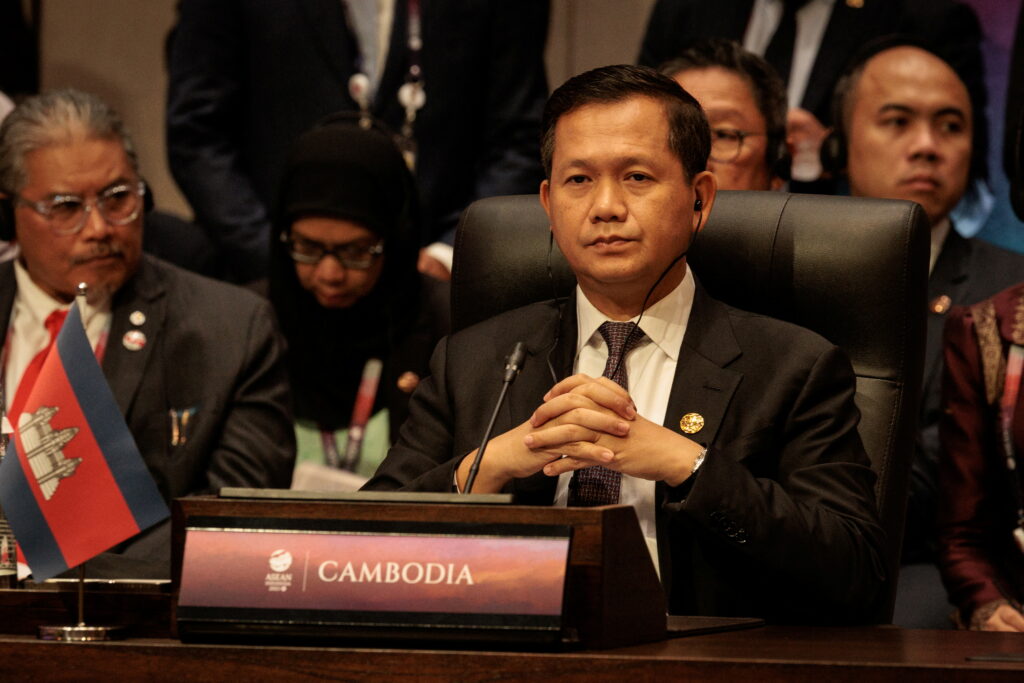The prevailing arguments about Cambodia’s close relationship with China have centred on three key propositions. First, there is the notion that China has ‘captured’ the Cambodian ruling elites through underhanded business deals — second, that Cambodia has enjoyed economic benefits from China without paying a high political cost. Finally, there is the argument that the United States has failed to engage politically with Cambodia, pushing it closer to China. But these arguments fail to fully explain the strategic rationale shaping Cambodia’s China policy.
Cambodia is a small state trapped between a rock and a hard place. A look at Cambodia’s history since the demise of the Khmer Empire points to a persistent quandary facing its foreign policy and security. To survive, Cambodia must manage the security challenges stemming from its larger neighbours, Vietnam and Thailand. While ties with these countries have been cordial in recent years, their past behaviour is not lost on Cambodia.
The 2008–2011 clash over the Preah Vihear Temple with Thailand and both Vietnam’s alleged land and maritime border encroachment together with their rhetoric about Cambodia’s Funan Techo Canal prove that security challenges from these neighbours can and will resurface. The saying that Vietnam must learn to live next to a bigger, more powerful China can also be applied to Cambodia striving to exist between a bigger Vietnam and Thailand.
While seeking to address security threats from its neighbours, Cambodia has reached out to great powers such as France, the United States and China to help preserve its existence. But its past overtures to the great powers for survival came at the cost of its autonomy and internal stability.
For instance, Cambodia’s reluctant acceptance of France’s protectorate in 1863 to avoid being subjugated by the Thai and the Vietnamese paved the way for a 90-year colonisation. Its swing to the United States during 1970–75 under former Cambodian prime minister Lon Nol’s military dictatorship pushed Cambodia into the United States’ war in Vietnam. Its embrace of China during 1975–79 resulted in the genocidal Khmer Rouge regime.
Cambodia’s close relations with China today have been driven by its quest for security between two bigger neighbours, but Cambodia faces strategic risk to its autonomy. This is indicated by its regional and international accommodation of China’s foreign policy interests, and its tumultuous ties with the United States. The security risks from Thailand and Vietnam and the risk of leaning on a great power to preserve its existence have been the key challenges defining Cambodia’s foreign policy.
This conundrum must not be overlooked but China should also not be considered the only factor determining Cambodia’s foreign policy in the modern day. Cambodia has pushed to diversify its foreign policy by deepening diplomatic and trade ties with the United Kingdom, the United Arab Emirates, Brazil, Turkey, Qatar, India, Egypt and others, though it will take years to see how much of a difference this will make.
Cambodia’s establishment of strategic partnerships with Thailand and South Korea in 2024 and the growing momentum with France and Australia in the same direction indicate a growing appetite to diversify economically, geopolitically and strategically. Meanwhile the United States is Cambodia’s biggest export market and Japan — as one of its two comprehensive strategic partners — holds significant economic clout. Trade and investment ties with fellow ASEAN members have also helped Cambodia diversify its economy.
Cambodia’s push for diversification does not mean it is drifting away from China or that China is becoming less vital for Cambodia. But Cambodia is trying to not put all its trust in China. Critics who are still unhappy about Cambodia’s handling of the 2012 ASEAN Chairmanship have reasons to underplay its commendable leadership of ASEAN in 2022 and its evolving foreign policy. But the 2012 reference remaining their go-to argument after all these years is quite telling.
The discourse about Cambodia’s China policy needs to account for the enduring security challenges posed by Thailand and Vietnam and the risk Cambodia faces by relying on great powers for survival. While China is Cambodia’s most vital strategic partner for the time being — and the jury is still out on how adept Cambodia’s ongoing diversification will turn out to be — there is growing momentum in the direction of greater diversification under Prime Minister Hun Manet.
Chansambath Bong is a PhD scholar at the Strategic and Defence Studies Centre, The Australian National University, and a Research Fellow at the Asian Vision Institute in Cambodia.

